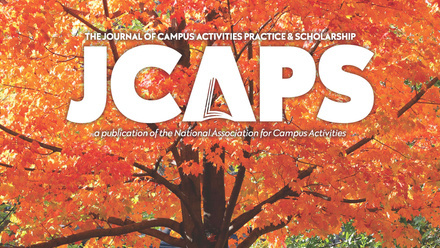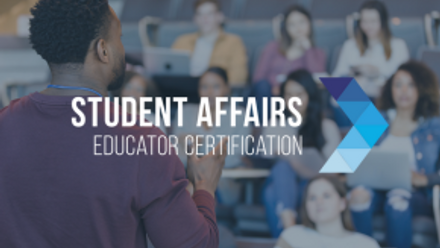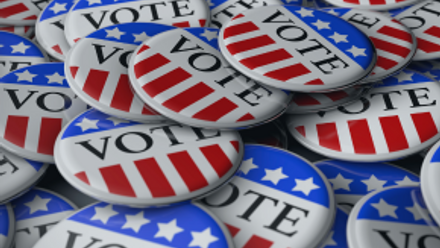I Don't Know What I Don't Know: Part 2
In Part 1 I shared that as a cast member at Walt Disney World I learned to never say, "I Don't Know" without then making the effort to find the answer.
Now, repeat after me, I DON'T KNOW WHAT I DON'T KNOW.
I do this to point out that not only am I unaware of the answer, but I am also unaware that there is a gap in my knowledge. I am unaware of the fact that I am unaware. Often the expectation is that we should have had a plan for the unexpected.
Think that through.
If I don't know what I don't know It follows that if I am doing anything that I have not done before I am naturally going to encounter moments I have not anticipated. I may need to open myself up to a different set of options, and the possibility of an experience that I have not had before.
When I began learning magic, I did not realize that there would be so much that I did not know. I thought that performing a magic effect was pretty straight forward.
Learn the effect
Acquire the needed apparatus
Develop the skills to perform it
Learning the mechanics of the effect is perhaps the smallest part of developing the ability to perform and present it successfully for an audience. Learning to perform it successfully and present it for an audience is perhaps the smallest part of being a successful professional magician. Pro magicians love to say, "It's called show BUSINESS!" Being an entertainment entrepreneur is an entire enterprise that you are not going to learn in a magic book.
I learned early on that I am good at coming up with an idea. I might have a concept that I want to develop. I can visualize what I want to put on stage. I imagine a show concept that I want to create. In most instances my producer and creative team will look at me and ask, "what are the staging parameters of this? What are the lighting needs? What tradeoffs and opportunity costs will there be for taking on this project and tying up resources?" I was in the business for years before I heard of the term opportunity costs.
I would have to look at my team and admit, "I don't know." It was only after many years that I began to grasp that I don't have the ability to know what I don't know. And several years after that that I learned, I'm okay with that. I began to look at each opportunity, and then, make the choice that part of this exercise is so that I can go learn what I don't know.
This idea came home for me when I proposed to produce and star in a show for the Orlando Fringe Festival. In most cases a good show for a Fringe festival is supposed to be an experimental project. After all, it's not intended to be mainstream. It's on The Fringes of traditional theater. Typically, a fringe show is not for finished, complete, done, ready to package entertainment. It's where artists go to try to be different, avant-garde, and cutting edge. It's a place to experiment. I felt that The Fringe would provide a venue for me, and by association my team, to step out of my comfort zone, push my own limits, and develop new material. And yet, I still managed to underestimate the huge number of decisions that would need to be made. I was about to encounter situations I had never come up against before, and therefore would not have a ready answer for dealing with them. To switch analogies; The Fringe is Sink or Swim.
And most people Sink on their 1st attempt to stage a Fringe show.
But no one could accuse me of not being fully in. So that I could use the experience as a place to experiment I specifically gave myself obstacles that we had to be overcome. I did this because I wanted to see how we would find solutions. We discarded what was easy and instead made decisions that would force us out of our safety zone.
As a person who has spent my entire professional life performing in front of audiences or in public speaking, I knew that my greatest strength is my speaking ability. The one skill I know I always have is my voice. I chose instead to remove that option and perform the entire show without my ever speaking a word. I wanted to force myself to find methods to tell a story in a different way. How would I hold the audience's attention and communicate if I wasn't using words? It was clear that I didn't know what I didn't know.
Are you thinking that the obvious choice was to use music?. Sure. But I wanted to use live music.
I had never worked with live musicians in a magic show. On those few occasions when I had performed in a theatrical musical the musicians had always been down "in the pit". For this show I wanted them onstage, front and center. I visualized them as onstage members of the ensemble. Not merely the soundtrack but characters in the story. But how do you incorporate a cello, violin, and a viola into stage blocking? How do you transition in and out of their musical pieces and incorporate them into the action happening on stage?
The solution was to approach the very talented Michelle Jones – https://www.violectric.net/ and asked her if she would be the musical voice of the show. She and her group agreed to help create the shading and the emotion for the show. They were involved in every decision of the show.
I asked my son, Joshua, to join the cast and perform along side of me, not as my assistant the way we had in the past, but as my equal. In turn he stepped up and performed an entire piece of the show as a solo.
Each of these elements were things that none of us had done before. When I told them going in, right up front, that I don't know what I don't know everyone said, "let's go find out." We agreed that the worst-case scenario might be that all we had to gain was a learning. There was a higher-than-average chance that we would only learn what didn't work. But we agreed that we were going to come out of it knowing something that we didn't know before. The key was, we didn't know what we didn't know and would only find out once we were fully committed. Ultimately, that is a very good analogy for what happened.
Oddly enough, I began to feel that Not Knowing What We Didn't Know worked to our advantage. If we had known in advance the size and complexity of the challenge that we were taking on, or of the number of problems we would have to navigate, we might have decided it was too large a hill to climb. But because we didn't know all of that, we took the risk and created an amazing show.
In the end –
We did create something that we were all extremely proud of.
I learned that I knew very little about self-promotion and creating "buzz".
None of us knew how much we still had to learn about building a larger team and working creatively with artists, not just with different skills, but with differing points of view.
I did not know that it would be so terrifying to create and stage magic in a way that I had not attempted before.
Michelle and her group learned that it was harder to step out of the background and to become animated on-stage personalities.
We also learned that THE BUNNY WILL ALWAYS GET TOP BILLING
The biggest surprise was how much it ultimately took to create an original show from the ground up. I valued every moment of it. Even when I was terrified.
The Bottom Line? As a leader sooner or later you will be asked, "Will this work?"
If you can change the answer to that question from "I don't know," to "I don't know, but let's go see what we can learn", you are going to learn something. You Don't Know What You Don't Know…until you try.






